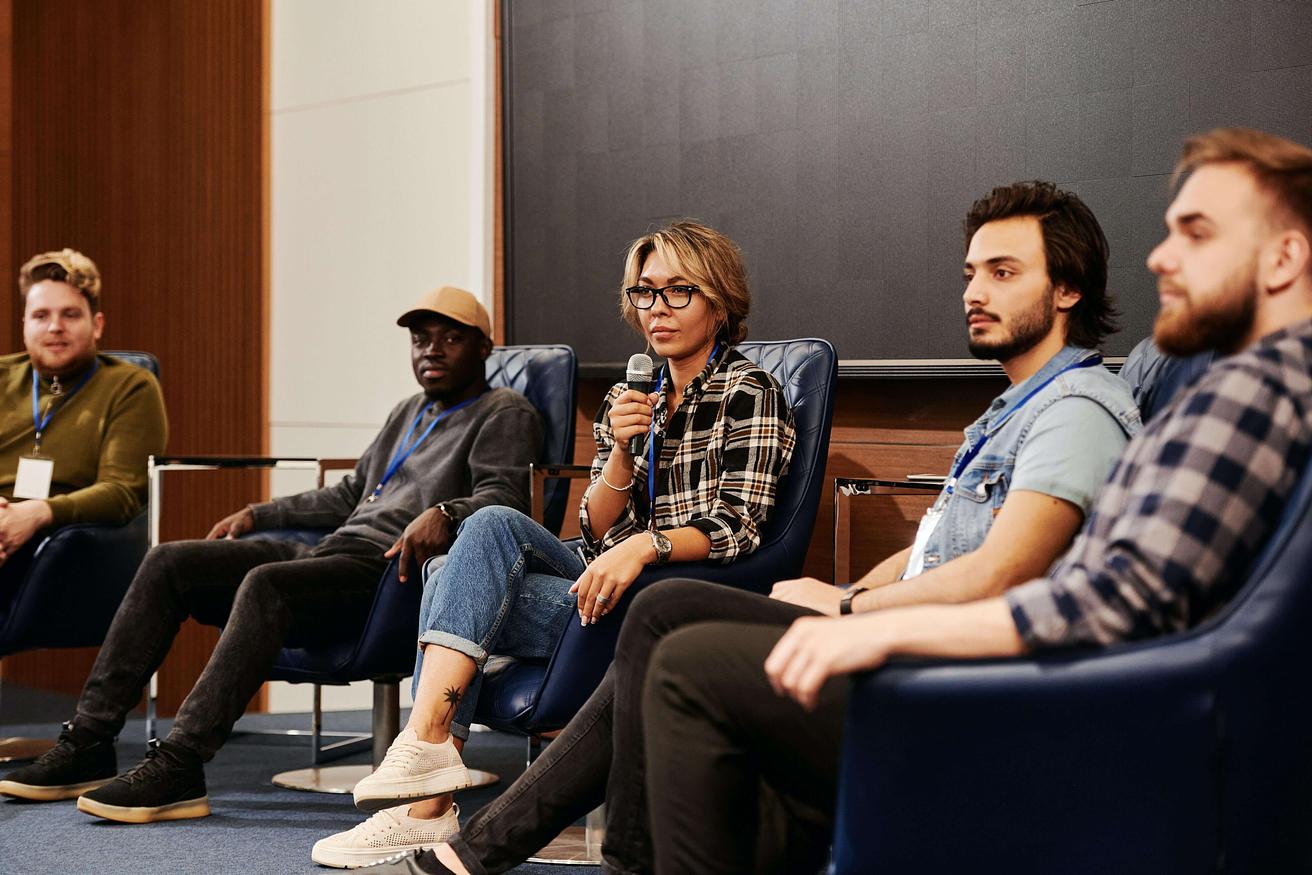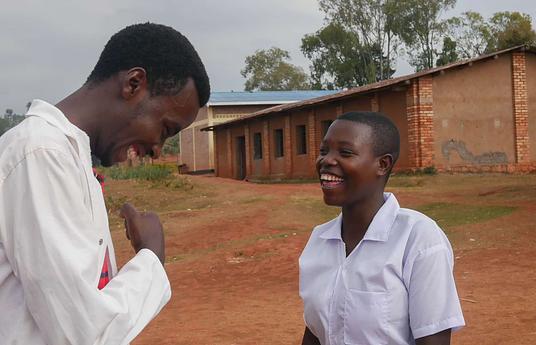At the 2021 HundrED Innovation Summit held late last year we hosted a workshop in collaboration with inHive – a specialist team of network builders – which brought together experts and practitioners to share insights about network building for transformative social change and innovation in education. The session featured Dr. Rana Dajani, Dr. Maria Gallo, Joseph Munyambanza, Margaux Jacquemin, and Dr. Ján Michalko. In this article, we highlight our key takeaways from that discussion.
We, as a global community, are facing some unprecedented crises. From climate change, which was at the front of our minds during the COP26 in Glasgow late last year, to the COVID-19 pandemic, these complex crises are interwoven with social, economic and political injustices and inequities. For example, children in some parts of the world missed nearly 2 years of schooling during the pandemic because of unequal access to vaccines and online learning solutions among other factors. We saw these issues negatively affect the most vulnerable, like those already on the verge of or in poverty, especially women of colour.
These interlinked injustices and inequities require us to work collectively across geographies, disciplines and sectors because no one single person, organisation, or solution will allow us to address all of them. Networks have been successfully mobilized to deal with these challenges – from identifying people to design online curriculum and do informal community-based teaching when schools were shut; to distributing food and basic necessities when economic activities had to stop and people were not able to earn income.
Seeing the promise and potential embedded in diverse, inclusive and learning networks as ways of collaborating for social change, Dr. Ján Michalko, Senior Project Lead at selected innovation, inHive and Annina Huhtula, Content Director at HundrED hosted a workshop to share best practices in network building. It featured 4 global experts:
- Dr. Rana Dajani, Founder of We Love Reading and board member of the Catalyst 2030 Network
- Dr. Maria Gallo, Visiting Research Fellow, Trinity College, Dublin, Author of The Alumni Way
- Joseph Munyambanza, Consultant at the Mastercard Foundation
- Margaux Jacquemin, Head of Alumni Enseña por México / Teach For All Network
Check out some of the insights in response to the 3 key questions that guided the workshop and watch the full video to learn more about the importance of networks to accelerate innovation and deliver impact that is meaningful and transformative, and to do so at scale.
Why is it worth investing in our networks to achieve social impact?
Dr. Maria Gallo: “Networks foster a sense of belonging to a wider group. It is this sense of internalized identity that helps members of a network become mobilized--and even passionate-- about taking action.”
“Being part of a network that has the same goal allows you the space to deal with ambiguity and think outside the box.”
Dr. Rana Dajani: “Being part of a network that has the same goal allows you the space to deal with ambiguity and think outside the box. I think that’s an important thing because usually we only talk with people who are very much like us and we shy away from people who are very different. Being part of a network with a common goal, helps us overcome that challenge.”
What are some of the networks that innovators can set up and foster to amplify their impact?
Joseph Munyambanza: “I think it’s very good to create a sector focused on networks especially when you are working with young professionals to make sure that everyone’s needs are catered. At the same time, I think that it’s important to know that a network is part of one ecosystem. For example, when you are supporting young people who are passionate about agriculture, or passionate about infrastructure, it’s good to know that there is a lot of learning in other sectors which may help them to broaden their perspective and understand how different sectors and industries interact.”
“Networks beat systems in a changing world. When the pandemic closed schools, it was often not governments that proposed solutions, but teachers, parents, nonprofits and other local leaders who banded together using their existing relationships and made things happen.”
Margaux Jacquemin: “Networks beat systems in a changing world. When the pandemic closed schools, it was often not governments that proposed solutions, but teachers, parents, nonprofits and other local leaders who banded together using their existing relationships and made things happen. In times of crisis, informal networks were more effective than formal systems. Networks are more important than systems in our uncertain world. To sum up, innovators can set up or foster informal networks to amplify their impact.”
What are some tips and tricks for building effective networks?
“Be intentional in making sure everyone is given the opportunity to participate. Members of the network may come from different backgrounds and come from different cultures”
Joseph Munyambanza: “Be intentional in making sure everyone is given the opportunity to participate. Members of the network may come from different backgrounds and come from different cultures. Sometimes you have a few people dominating the stage and others listening in the background. Ask questions and seek the opinion and interests of others to make sure they’re engaged. This is even crucial while working with communities where gender norms prevent people from expressing themselves to their fullest potential.”
Margaux Jacquemin: “Invest in community-led networks. There really is a benefit for people who engage with a network. When networks are at their most powerful, they make people happier and more inspired in their work and the outputs and impacts of that can be really strong and varied.”
“Have confidence in yourself. Tell your story, share your opinion, talk about how you feel and don’t feel intimidated. We need role models all over the world. People need to see people who look like them, who speak like them and that encourages others, so don’t think that you’re just another person.”
Dr. Maria Gallo: “Don’t be afraid to create and foster social impact networks. If there is a shared, formal experience that brings people together to create social change, chances are it was a transformational experience. This doesn’t leave the individual when they finish the programme. Creating an extended alumni network is a way to foster advocates and innovators for the original programme itself or to enable individuals to bring this to their communities. These networks often don’t need fancy bells and whistles. Often the most effective networks are those that are centred on the needs of the network and give everyone a voice and an opportunity to participate -- a healthy balance of contributing and benefitting from the human capital and social capital within the wider group.”
Dr. Rana Dajani: “Have confidence in yourself. Tell your story, share your opinion, talk about how you feel and don’t feel intimidated. We need role models all over the world. People need to see people who look like them, who speak like them and that encourages others, so don’t think that you’re just another person. You are unique, nobody has your same DNA so you have something to give to the world. It’s a fresh perspective, so share it openly and with confidence and that’s how together as said above, we can all change together.“
The expertise shared during this HundrED Innovation Summit workshop has also been featured in an article for the World Economic Forum. You can find the full HundrED 2021 Innovation Summit Program on the official HundrED YouTube Channel.



